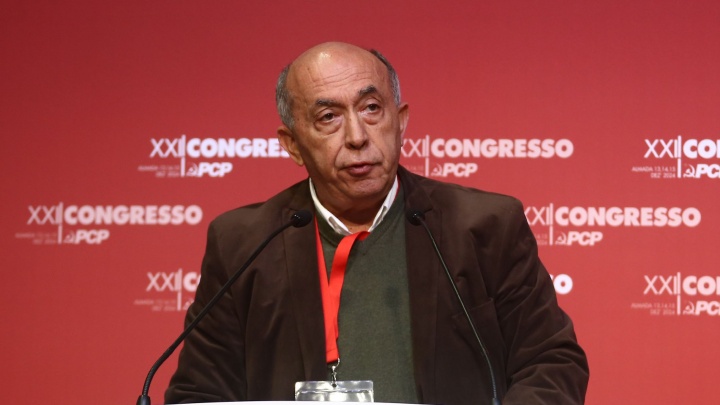Education, which should be a cause for hope among our people, is today, on the contrary, a cause of great anxiety and deep concern. This is the result of the political and ideological offensive against the right to education and the Public Education System.
This offensive is centred on a very strong commitment to maintaining education as a means for the reproduction of capitalism, reproducing the material and ideological conditions for its own existence.
Structural elements of the campaign against education and the Public Education System are the growing disempowerment of the State, the public funding for private education, the subordination of pedagogic criteria in favour of economic and elitist criteria, together with the continued, decades-long, devaluation of the education system’s workers, in particular of teachers and educators.
School and society, education and democracy, are mutually interdependent. This reality has been clear ever since ancient societies, when schools were reserved for the few who performed socially prestigious functions. So too today, when education is increasingly geared towards the interests and needs of the labour market. For this reason, in the construction of the educational model there has always been a clash between those who defend the democratization of society and those who defend the interests of the ruling classes.
Already in 1996, even OECD stated, concerning the Public Education System of the future, that it would do no more than, and I quote: “ensure access to learning to those who will never constitute a profitable market and whose exclusion from society at large will be exacerbated, as others continue to progress”. In other words, in the future Public Education will be, in the opinion of OECD, for the workers' children - those poor devils without the financial resources to attend elite schools.
The State cannot be content with merely recognizing the right to education, teaching, and equal opportunities in education, from a material point of view. It must commit itself to eliminate the barriers to its fulfilment, and to create conditions that allow access for all, at every level of knowledge, unlike what happens today.
As a prominent part of this offensive, which is the responsibility of successive PS, PSD, and CDS governments, now with the support of Chega and IL, we have the social and professional devaluation of education workers, in particular teachers and educators. The seriousness of this problem lies not just in its immediate consequences, namely the very significant number of students without a teacher in at least one subject. It will only be properly assessed later on, namely with its negative implications for the quality of learning.
Faced with this extremely serious problem, about which the PCP has long warned, what was the current government's choice?
It has recruited thousands of graduates without the proper training for teaching, thus jeopardizing the quality of education. It has tried, unsuccessfully, to get a few hundred retired teachers to return to teaching (they hoped for 500, but only 63 have accepted the challenge). But 16,000 teachers have left the education system, and so these options, as the statistics show, merely postpone the solution of the problem. Today, at the end of the first school term, around 30,000 students still do not have a teacher in at least one subject.
The problem cannot be solved by hiding it, much less by lying to the Portuguese people, as the Minister of Education has done. It is by reversing the deterioration of the teachers' professional and social conditions, by valuing the teaching career, by providing good working conditions and decent salaries, and by putting an end to precarious work, that we can attract more young people to the profession.
Meanwhile, some suggest that teachers could be replaced by ever more powerful and intelligent machines as if it were possible to carry out education in virtual spaces, and when many of the fashionable technologies, in particular AI, threaten a public, cultured, creative, and humane education.
What we advocate for our country is a reconfiguration of public education that equips students to become the creators of an advanced, conscious, democratic country.
That is why schooling needs to be based on an organization of teaching that can combine learning with citizenship training, ensuring a critical and active participation of each individual in society.
The educational system must have the integral culture of the individual at its core and as its main goal - as described by Bento de Jesus Caraça in his work. It must value learning and a Public Education System that is democratically managed and equipped with the objectives, structures, programs and financial and human resources that can ensure the materialization of the right to education and equal opportunities for all Portuguese people in access to, and success in, education.
A non-governmentalized, autonomous, and responsible education system is the real challenge facing the workers and the people.
A Public education that strives for a core curriculum that can prepare those who complete it, not just for production but also for a conscious participation in society.
An educational system that can create, by the year 2030, a public network of nurseries for children aged 0 to 3, as the first stage of early childhood education.
I will end with a comment from the work of Bento Jesus Caraça. He said: «we are like the hiker who, after a long journey, suddenly finds his path lengthened by an unexpected turn at a bend in the path. Let us, as creators under construction of a concrete, integral and full human citizenship, be up to the task, in theory, and practice, of the difficult journeys that our times increasingly demand.»
Long live the Public Education System!
Long live the XXII Congress of the Portuguese Communist Party!
Long live the Portuguese Communist Party!
